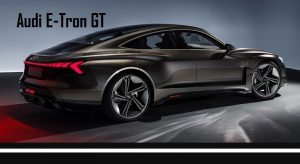When buying a new car, anything other than a gasoline or diesel engine was usually considered a bit of a departure. All new vehicles must be mostly electric in the near future and electric by 2035. A hybrid car is a reasonable initial step since it has a standard combustion engine supported by an electric motor, a decent middle-ground for beginners. But, in comparison to owning a vehicle with a gasoline engine, how different is it to possess a hybrid vehicle? This complete guide will break down a few essential factors for you to think about.
Environmental:
The environmental factors are perhaps the most significant distinction between a hybrid and a petrol vehicle. Every travel taken in a petrol vehicle emits carbon dioxide through the exhaust pipe. Weather change is caused by a combination of carbon dioxide and greenhouse gases, which have long-term, negative consequences for the environment. However, you can control your emissions with a plug-in hybrid. Shorter, lower-power journeys can be accomplished entirely on the electric battery on a day-to-day basis.
Not only will your operating costs be drastically reduced, but your carbon impact will be significantly reduced as well. Another miracle of a plug-in hybrid for the environment is how an electric car battery reduces trash. Regenerative braking, for example, turns braking energy into energy for the automobile battery.
Design:
Whether you choose a car that runs on petrol or one that runs on electricity, you can expect luxury from both. A hybrid looks just like its petrol version, except for a few tiny modifications that you would expect to see in an onboard charger, for example. As a result, regardless of which option you choose, you can expect a hybrid to have a stunning exterior and opulent inside.
Driving performance:
Engines in hybrid vehicles are substantially heavier than ordinary combustion engines since they include a motor and a battery. Both have less combined power than a petrol-powered engine. On the other hand, many hybrid vehicles have smaller fuel engines than comparable petrol vehicles. Hybrid vehicles may produce the same type of handling as a more powerful vehicle with fewer cylinders and less bulk, thanks to the electric motor’s ability to generate additional power when accelerating or climbing hills.
The engine volume is another significant difference between a petrol and a hybrid car. The faint hum of a hybrid engine will make you wonder if you have even switched it on. If hearing the sound of a roaring engine is one of your favourite driving elements, switching to a hybrid might not be the best option right now.
Economical:
Plug-in hybrid vehicles offer a number of cost-of-operation advantages. You will see a significant reduction in your monthly fuel benefit if you can run your day-to-day journeys on battery power. A vehicle with a combination of power kinds is also more efficient. However, if you frequently travel long distances, you will most likely need to stop refuelling, which you won’t have to worry about with a petrol engine. Plug-in hybrids are also heavier cars due to their larger batteries, which reduces their fuel economy once the batteries are drained.
Final thoughts:
As a result, many commuters may go and from work without using any gasoline, and their emissions are significantly lower than those of a traditional hybrid. In any case, hybrids will become increasingly prevalent in the market, so keep an eye out. Do you require car removal for your old vehicle? Trade your old car for cash with the best car buyer Sydney that buys and sells all types of trash and junk cars.


















